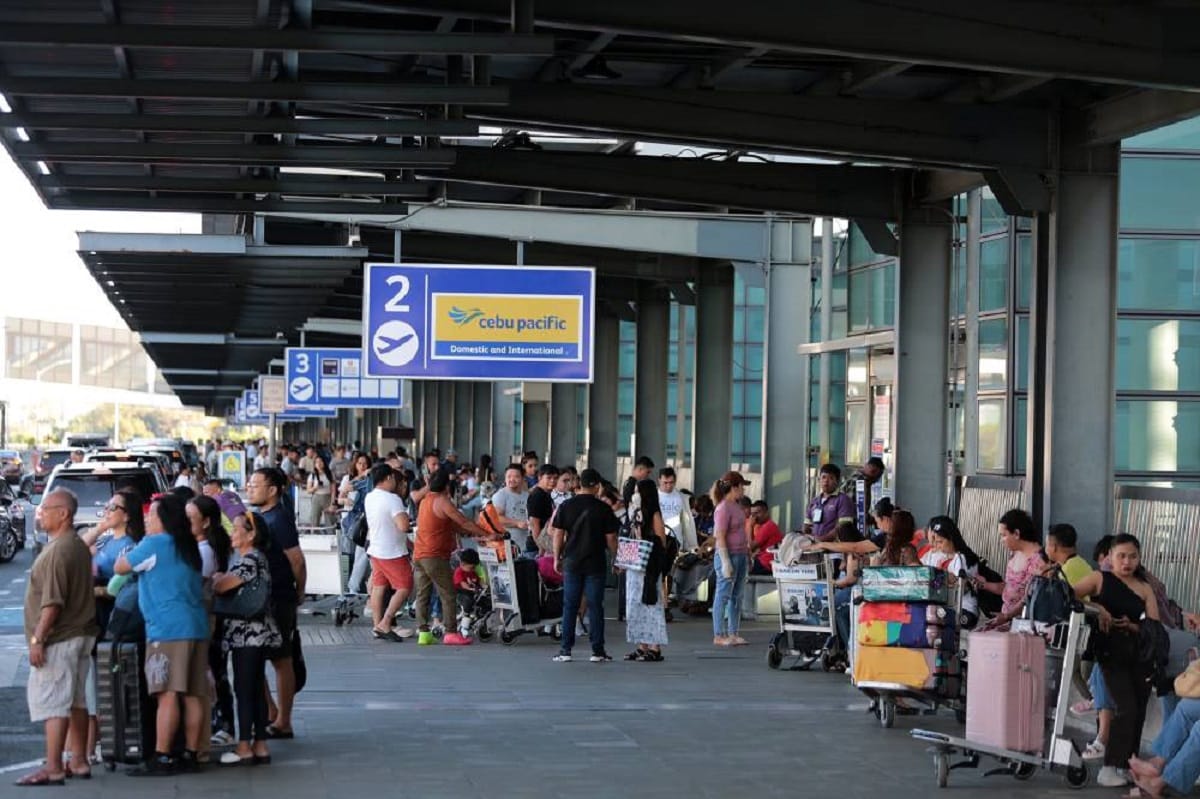Airport watchdog says Naia fees hike is ‘cash grab’

NAIA TERMINAL 3 / MARCH 3, 2024
Passengers arrive at the Ninoy Aquino International Airport (NAIA) terminal 3 in Paranaque City on Sunday, March 3, 2024. Manila International Airport Authority (MIAA) head executive assistant Chris Noel Bendijo said that the NAIA terminals 2 and 3 are now free from bed bugs.
INQUIRER PHOTO / GRIG C. MONTEGRANDE
MANILA, Philippines – Fee increases at the Ninoy Aquino International Airport (Naia) are a “cash grab,” according to a travelers’ rights advocacy group calling to put hikes on hold.
AirportWatch.PH spokesperson Ren delos Santos said in a statement, “Instead of delivering on its promise to modernize the airport, the DOTr (Department of Transportation) has implemented what feels like a cash grab.”
“Higher costs for passengers and airlines translate into higher costs for consumers and businesses across the board. This PPP (public-private partnership) scheme was supposed to bring about necessary upgrades, but we’re seeing fee hikes before any significant improvements have materialized,” Delos Santos added.
READ: Naia parking rate hike jeered; SMC-led group explains
READ: Naia airport fee hike approved by Cabinet – DOTr
Starting October 1, the airport’s parking fees increased from P300 to P1,200 for overnight or 24-hour car parking; and from P40 for the first three hours and P15 for every succeeding hour to P50 for the first two hours and P25 for every succeeding hour for short-term car parking.
READ: SMC group all set to take over Naia on Sept 14
The New Naia Infrastructure Corporation (NNIC), the airport’s new managing consortium, in an October 1 statement said the new parking rates were meant to deter misuse of the parking spaces, adding it “prioritizes passengers, reduces congestion and improves efficiency.”
NNIC previously also announced that, beginning September 2025, the terminal fees for domestic travelers will rise from P200 to P500, while those for international travelers will rise from P550 to P950.
“The group is calling on the DOTr to immediately put these fee hikes on hold until substantial infrastructure improvements are in place,” AirportWatch.PH said.
It continued, “Increased operational fees will likely lead to higher logistics costs for businesses, which may then pass these expenses onto consumers. With transportation costs rising, inflationary pressures are likely to increase, ultimately affecting the price of goods and services across the economy.”
AirportWatch.PH added that the country could also “lose its appeal to cost-sensitive international tourists and domestic travelers alike.”
“As one of the most critical transportation hubs in the country, Naia’s management should focus on delivering value rather than extracting revenue,” the group stressed.
The NNIC, a San Miguel Corporation-led conglomerate, took over the airport management and operations last September, after winning the P170.6-billion bid to rehabilitate and expand the country’s premier gateway.